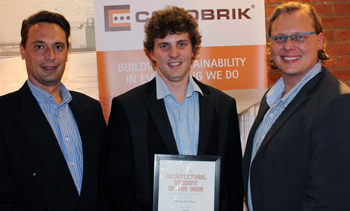Latest News Archive
Please select Category, Year, and then Month to display items
14 November 2024
|
Story André Damons
|
Photo André Damons
 Staff members from the Directorate Research Development (DRD) at the University of the Free State; Palesa Mgaga, second from right, Tebogo Machethe, centre, and Charelise van Staden, second from right, were thanked for hosting the launch of the Khoebo Innovation Promotion Programme. They are pictured with colleagues from the IDC’s Samkelisiwe Mtsewu, left, and Thato Mogopodi, far right.
Staff members from the Directorate Research Development (DRD) at the University of the Free State; Palesa Mgaga, second from right, Tebogo Machethe, centre, and Charelise van Staden, second from right, were thanked for hosting the launch of the Khoebo Innovation Promotion Programme. They are pictured with colleagues from the IDC’s Samkelisiwe Mtsewu, left, and Thato Mogopodi, far right.
The University of the Free State (UFS), represented by the Directorate Research Development (DRD), played host to the Department of Trade Industry and Competition (dtic) and the Industrial Development Corporation (IDC) for the launch of its Khoebo Innovation Promotion Programme (KIPP).
The launch took place on 5 November in the Sasol Library on the Bloemfontein Campus. Tebogo Machethe, Director: Research Contracts and Innovation at the DRD, said its role was to expose the university researchers to different opportunities and programmes for funding from the IDC and the dtic. It also allowed the researchers to engage potential funders in order to understand what funders look for in a project when considering funding it.
“The aim of IDC KIPP is to assist local entrepreneurs and small to medium enterprises with commercialisation funding. The KIPP offers capital and business support to SMMEs during the early stages of commercialisation with particular emphasis on township and rural entrepreneurs,” said Machethe.
Address uneven distribution of economic development
KIPP is a dtic programme but is managed by the IDC and aims to enable early-stage innovative SMEs to penetrate the market with their locally developed innovations, resulting in a more competitive economic environment and thereby facilitating economic growth in the economy.
According to Machethe, who welcomed the guests, participants and presenters to the launch, some of the funding is geared towards the development of university innovations. Though the focus was on the KIPP launch, he continued, the discussions also encompassed other forms of funding that are available and more geared towards the university innovation.
His address was centred around the university's Vision 130 and how it supports innovation and the entire innovation ecosystem, which seeks to shift the emphasis to research impact, embracing both knowledge and societal impact. Vision 130 identifies the need for a greater focus on collaborative research, research that can attract large-scale funding in niche areas where the university is seen as a national and global leader.
Samkelisiwe Mtsewu, KIPP Account Manager at the IDC, said the programme was introduced to address the uneven distribution of economic development across the country. She said with its capacity, the KIPP programme can contribute to addressing the uneven distribution of economic development.
Department of Architecture recognises excellence
2014-11-20

From the left are: Gary Westwood, Marius du Plessis and Henry Pretorius
Photo: Ifa Tshishonge
Front page design by Marius du Plessis |
Marius du Plessis received the first prize in the Regional Corobrik Student of the Year Award for his design of a National Geothermal Research and Educational Centre in Johannesburg. The award ceremony was hosted by the Department of Architecture at the University of the Free State.
Anja Lareman was awarded the second prize for her Psychiatric Unit for the Deaf in Worcester and Mariska Peel received third prize for her design of a laboratory for the after oil epoch in Durban.
The Corobrik award for Best use of clay masonry brickwork was awarded to Valentino Moutzouris for his design of a Performing Arts Centre in Wynberg, Cape Town.
The event was well attended by architecture students who hoped to take home an award. Projects exhibited, received distinctions in one or all of the three main components, including design, the architectural theoretical treatise and building sciences.
“This is the greatest award that one could win in the Free State. It came with so much blood, sweat and tears, as I had to live, eat and work day and night at the same place in order to finish the project,” said Marius, master’s student in Architecture. He said that he hopes the project can be developed and implemented in mine shafts to solve the energy crisis in South Africa.
Henry Pretorius, Academic Departmental Head of Architecture, said: “It is vital for architecture to have a public interface. This event is to showcase the work of students and to make sure that it is accessible to the public. It encourages students to understand the value of their own work and its cognisance to society.”
Gary Westwood, Sales Manager of Corobrik Free State, Northern Cape and Lesotho region, said: “So far it has been an incredible journey. This annual event of 24 years is our way of giving back to the community who supports and sustains our business. It is wonderful to see how the architecture industry has adapted to a more sustainable way of design, by being part of the green movement.”
Marius will compete with other Corobrik winners from various universities on national level in April 2015.